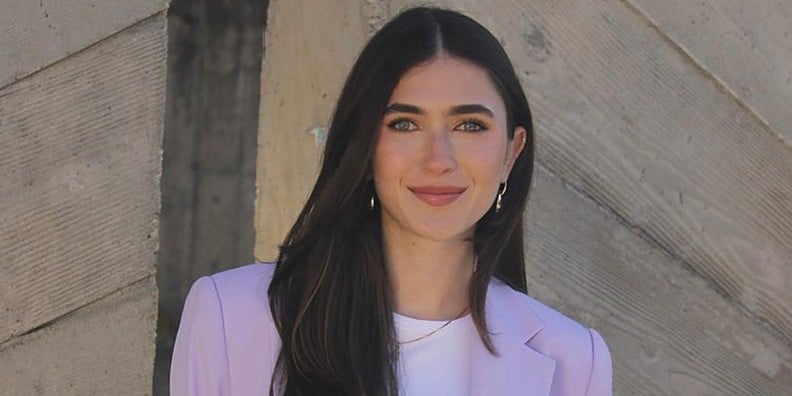“I hope that students realize that they can advocate for themselves and that the more there are observant Jews in the workplace, the more changes there will be to accommodate people like us.”
By Dion J. Pierre, The Algemeiner
As college students across California prepared to close the book on another academic year, a deluge of antisemitic incidents swept across the state’s campuses in May, with students celebrating the birthday of Adolf Hitler at UC Santa Cruz and graffiting swastikas on the walls of a bathroom at UC San Diego.
But amid the darkness, students at UC Santa Barbara made the historic choice to elect the school’s first ever Shabbat observant student body president.
Tessa Veksler, a third-year political science major, was elected on April 27 as president of UCSB Associated Students (AS) with 51 percent of the vote. She will begin her tenure on Wednesday and over the next year will act as a liaison between UC Santa Barbara Chancellor Henry T. Land and the school’s 23,000 undergraduates.
“I hope that students realize that they can advocate for themselves and that the more there are observant Jews in the workplace, the more changes there will be to accommodate people like us,” Veksler told The Algemeiner on Tuesday.
Veksler, 21, explained that becoming president had always been a “far-distant” goal of hers. But Russia’s invasion of Ukraine, from which her family emigrated in the 1990s, compelled her to run.
“When the conflict started, I was one of the only Ukrainian students within student government, and so many students turned to me for advice,” she said. “In working to help international students in Ukraine I realized how very few resources were available and that the ones that were available were not well known.”
Balancing school and religious obligations is a challenge for Jewish members of the academic community, and on multiple occasions, events organized by campus groups have been held on Shabbat to prevent their participation in important meetings. Jewish students have also been expelled from campus groups for supporting Israel, as happened at State University of New York-New Paltz in 2022, when Cassandra Blotner was forced out of a sexual assault awareness group she co-founded.
Veksler said she has prepared for any possible hiccups in advance, notifying her staff that her Shabbat observance is non-negotiable and that, starting sundown on Fridays, her powers and responsibilities will be delegated to other AS officers. She remains assured, however, that her commitment to the practice is supported by her peers.
“I think that people have, if anything, expressed admiration for my being able to observe on a college campus,” she said. “You know, it’s a college campus, everyone wants to be partying on a Friday night and using their phones to relax after a hard week. Both Jews and non-Jews have expressed very positive comments about this.”
Rabbi Evan Goodman of Santa Barbara Hillel, a nonprofit that provides resources and counsels to Jewish college students in the area, is also optimistic about Veksler’s upcoming administration, telling The Algemeiner that the student body widely supported her candidacy.
“That Tessa is who she is and is able to be proudly and unapologetically Jewish thrills me,” Goodman said. “UCSB is a great campus for Jewish students, and her election continues a recent history of Jewish students taking their place as leaders and getting elected as leaders. I’m looking forward to her next year in office and seeing her bring all of her talents, and skills and passions to university leadership.”
“Having a student body president who is in the position to be able to explain, for example, the need for Yom Kippur accommodations is immensely positive,” said Alyza Lewin, president of the Louis D. Brandeis Center for Human Rights Under Law.
“When there’s an Orthodox Jewish Sabbath observer as a student body president, they are able to make sure that Jewish students do not miss out on club fairs or other student programming. They’re also able to explain to make sure that faculty are made aware of the need to accommodate students’ needs, and even to make sure that students are aware that they can request religious accommodations — for Yom Kippur, as well as Ramadan.”
